“Just in Time” Resources to Support Families of Children who are Deaf of Hard of Hearing*
*The content on this page was originally developed by the National Center for Hearing Assessment and Management (NCHAM) and NCHAM’s Family Advisory Committee. They have given permission to use and adapt the information for family websites.
“Just in Time” means “when you need it.” The resources below are meant to help you find support and information when you need it.
By Families, For Families
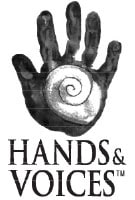
- Is a parent-driven organization to support all families of children who are DHH.
- Shares unbiased information about communication modalities, advocacy and more.
- Offers Guide By Your Side program: one-on-one family to family connections to support families with newly-identified children.
- Promotes Family Leadership in Language and Learning (FL3): resources to strengthen family leadership, support child language, literacy, social skills and DHH adult connections.
- State specific content available.
- Multiple languages: English, Spanish, Russian (more languages on local chapter pages).
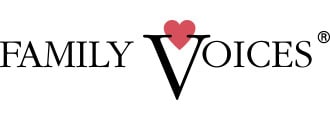
Family-to-Family Health Information Centers (F2Fs)
- Family-led organizations in every state that connect families to peer support, including under-served populations.
- Provides information, education, training, support and referral services.
- Print materials available.
- State-specific contacts available.
- Multiple languages: over 90 language options.
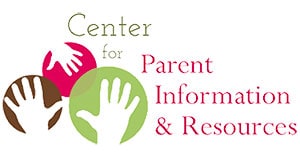
Parent Training and Information Centers (PTI’s) and Community Parent Resource Centers (CPRCs):
- Works with families of infants, toddlers, children, and youth with disabilities, including those who are DHH, ages birth to 26.
- Helps parents participate effectively in their children’s education and development.
- Partners with professionals and policy makers to improve outcomes for all children with disabilities.
- Print materials available.
- State specific content available.
- Multiple languages: available via most state-specific links.
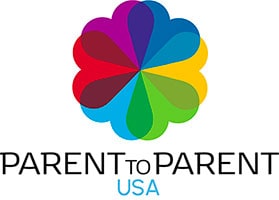
- Offers emotional & informational support for families of children who have special needs, including those who are DHH.
- Provides parents with one-to-one “match” with experienced, trained volunteer support parents.
- Assists parents in finding information and resources.
- State chapters in most states as well as neighboring state support.
- Multiple languages: available via most state-specific links.
More Resources
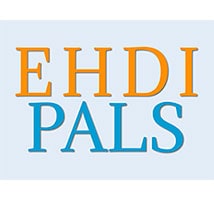
Early Hearing Detection & Intervention - Pediatric Audiology Links to Services
- Has a national web-based directory of places that offer pediatric audiology services to children ages birth to five.
- Helps families to find local providers.
- Allows providers to enter their information so that they can reach clients.
- State and local level contact information available.
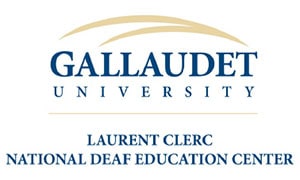
- Offers family supports to early language and early intervention for babies who are DHH.
- Provides strategies on how to read to children who are DHH.
- Produces “Odyssey: New Directions in Deaf Education”, theme-based magazine focusing on best practices in educating DHH children.
- Materials available in Spanish, English, and American Sign Language (ASL).
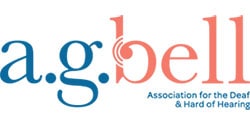
- Offers information about options and considerations on how to select a communication approach for their child. Especially useful for families using a listening and spoken language approach.
- Provides information and resources to help families learn how to provide access to communication as early as possible.
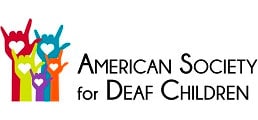
- Promotes access to communication-rich environments.
- Supports and educates families as well as advocates for access to information about communication and literacy.
- Emphasizes the benefits of using visual language with young children.
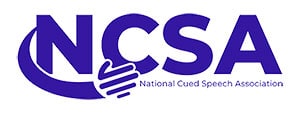
- Provides resources for using cued speech - a visual mode of communication in which mouth movements of speech combine with “cues” to make the sounds (phonemes) of traditional spoken languages look different.
- Offers links to special cued speech instructors.
- Focuses on the role of cued speech in promoting language and literacy.
Essential Information:
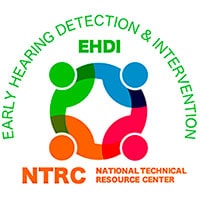
- Ensures that every baby receives a hearing screening and needed follow-up testing.
- Coordinates with early intervention and helps families get access to services.
- Ensures culturally-competent family support available to every family of an infant who is DHH.
- State specific contacts available at
http://EHDIprograms.org/
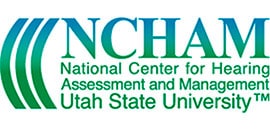
- Provides information for families needing to connect with state newborn hearing screening programs.
- Features a
Family Support Tab providing links to organizations that can help families of children who are deaf or hard of hearing.
- Print materials available: Communicate with your Child booklets and “Learning About Hearing Loss: A Roadmap for Families.”
- State specific content available.
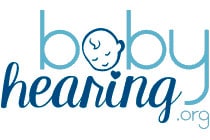
- Developed by Boys Town National Research Hospital.
- Answers questions about infant hearing screening and follow up testing, hearing devices, language and speech, and parenting issues.
- Visit the section at
https://www.babyhearing.org/parenting for parenting and family support topics.
- Available in Spanish and English.
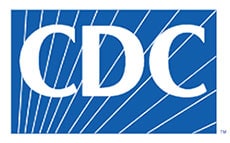
A Parent’s Guide to Hearing Loss
- Features programs and services about understanding hearing loss and how hearing is tested; finding professionals with expertise in serving babies with hearing loss; fitting a baby with a hearing device, and family support groups.
- Lists national organizations and state contacts.
- Available in Spanish and English.
Families Often Ask:
I’m concerned about my baby’s hearing and wonder if she has a hearing loss. Who can help me?
I'd like to know more about different ways to communicate with my baby- where can I get information?
Who can connect me with other parents of children who are deaf or hard of hearing?
My child has other needs in addition to hearing. Who can help me get information about other disabilities or health conditions?
I don't think my child is getting the early intervention services they need. Where can I learn more about my child's early intervention and educational rights?
Is there money available to get help to pay for hearing aids or other technology and services?
The original content on this page was funded in part by a cooperative agreement (U52MC04391) from the Maternal and Child Health Bureau (MCHB) of the Health Resources and Services Administration (HRSA) at the United States Department of Health and
Human Services.